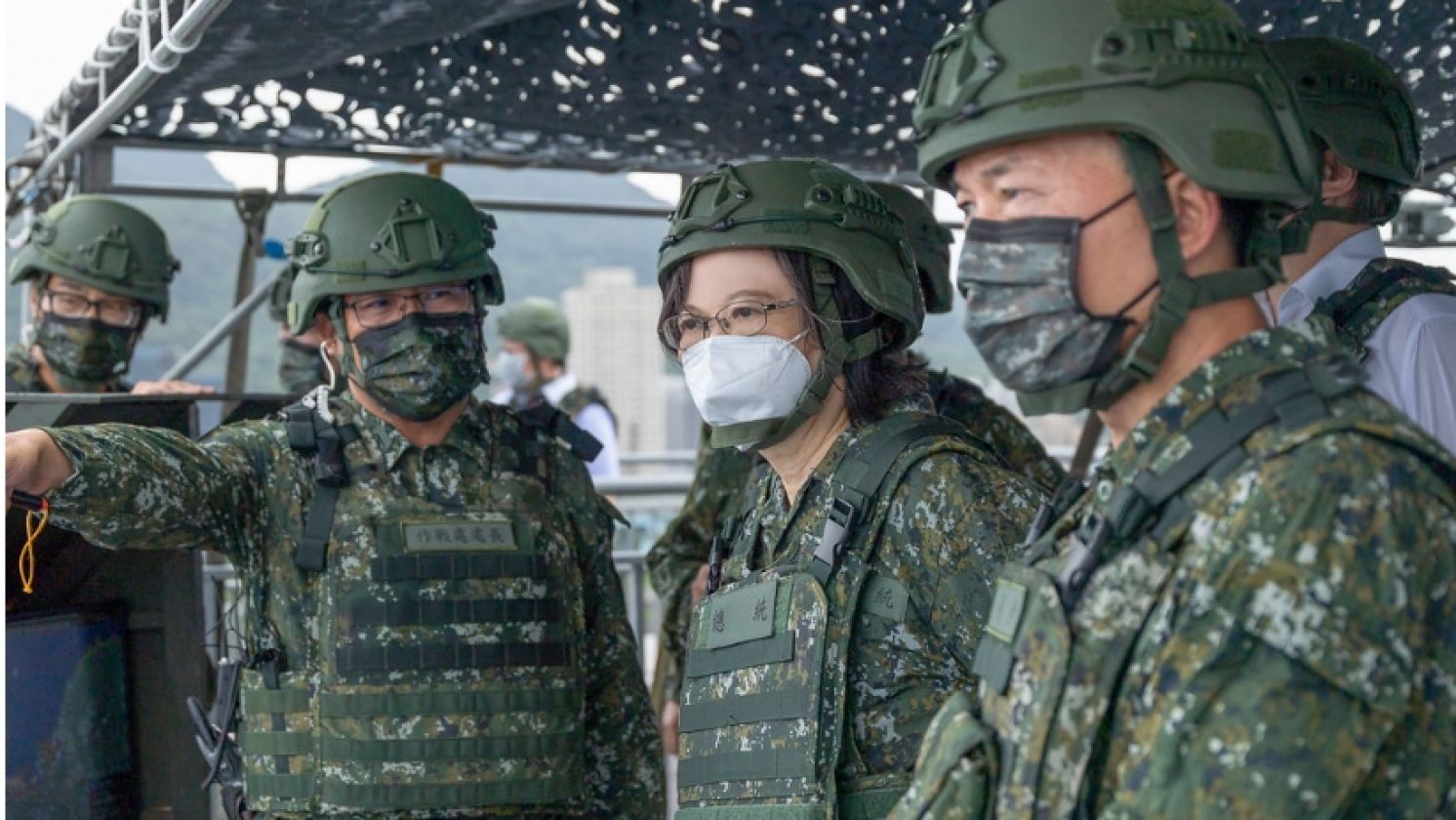
Defense Budget Sustains Tsai Administration's Cross-Strait Policy
By Huang Kwei-bo
China Times, August 9, 2023
An initial draft of the Cabinet's Fiscal Year 2024 Central Government Budget has earmarked NT$440 billion (US$13 billion) for national defense, an increase of NT$30 billion (US$ 944 million) from this year's budget. The defense budget for next year will continue to be the highest among other government departments, and is estimated to be about NT$100 billion more than respectively the Ministry of Education and the Ministry of Health and Welfare, which are known for their large budgets.
This figure does not include the special budget of NT$94.2 billion (US$ 2.9 billion) for large expenditures, such as the purchase of foreign weapon systems. If the two are added together, Taiwan’s defense expenditures next year will exceed NT$530 billion (US$16.6 billion).
The national defense budget of the Republic of China (Taiwan) has increased from NT$310 billion (US$9.7 billion), during the last year of President Ma Ying-jeou’s administration from 2008 to 2016, to an estimated NT$440 billion next year, an increase of about 28 percent. Multiple factors, including inflation after the pandemic, the United States and mainland China’s relationship, and the deterioration of cross-strait relations, have led Taiwan to accept the U.S. proposal to "fortify" Taiwan through its purchase of large quantities of weapons to deter possible attacks by the Chinese Communist Party.
Comments suggesting that the administration of President Tsai Ing-wen is trying to catch up in military spending because the Ma administration was unwilling to increase defense spending is completely false. The Ma administration used the three lines of defense--the institutionalization of cross-strait reconciliation, assuring Taiwan’s internationally-aligned moral high ground and values, and a combination of defense and diplomacy--hoping to further stabilize cross-strait relations and make the Taiwan Strait a peaceful and prosperous sea. This decreases the risk of misjudgment on the part of mainland China and increases the cost for them to try to reverse their actions when situations get out of hand.
The DPP responded by saying that the increase in defense spending is mostly due to the different sociopolitical landscape (Xi Jinping is not Hu Jintao) and that the Ma administration adopted a more pro-China stance and kept a distance from America. The fact is that the DPP has not reflected on its actions since its return to power in May 2016. Cross-strait political communication has significantly diminished, and the DPP does not want or dare to put forward substantive negotiating conditions (for example, under the premise of "one China, one Taiwan"), and has neglected the positive views that American officials held for the Ma administration’s policies that stabilized cross-strait relations.
This article does not intend to engage in a war of words but summarizes and presents the defense budget of the three heads of state from Chen Shui-bian, Ma Ying-jeou to Tsai Ing-wen in simple terms that is easy to understand. For the Chen administration from 2000 to 2008, due to the deterioration of cross-strait relations at the time, President Chen wanted to increase the defense budget and buy more weapons. However, he was unable to do so due to poor relations with the United States, leaving his budget the lowest. Later, President Ma’s term saw an improvement in cross-strait relations, and he was able to moderately strengthen national defense as Taiwan maintained good relations with the United States during his time in office. The Ma administration bought many more military weapons than Chen, so the budget then lands in the middle. Cross-strait relations started deteriorating again after President Tsai took office, and so her administration now wants to increase budgets and buy more weapons. As her administration follows in the footsteps of the United States and U.S.-China relations deteriorate, the defense budget during her term is the largest out of the three presidents.
There are some statements that try to justify the substantial increase in the defense budget. For example, saying it is because the Tsai administration has won the recognition of the international community. This is a flawed argument as it is hard to imagine saying the Ma administration had won less international recognition at a time when cross-strait relations were peaceful, stable, and mutually beneficial.
Some also say that even though the defense budget has increased significantly, the Tsai administration obtained reasonable prices for U.S. military purchases and attaches great importance to the military. This is a very subjective statement that is a bit far from the facts. Society should be able to hold a fair judgment of which arguments are valid.
Why didn’t the Tsai administration clearly tell the people of Taiwan around May 2020 when she was reelected for a second term in office that they will face such a national defense and security situation if they elected the DPP? The control of the national defense budget next year will depend on the professionalism, determination, and conscience of legislators.
From: https://www.chinatimes.com/opinion/20230801003129-262110